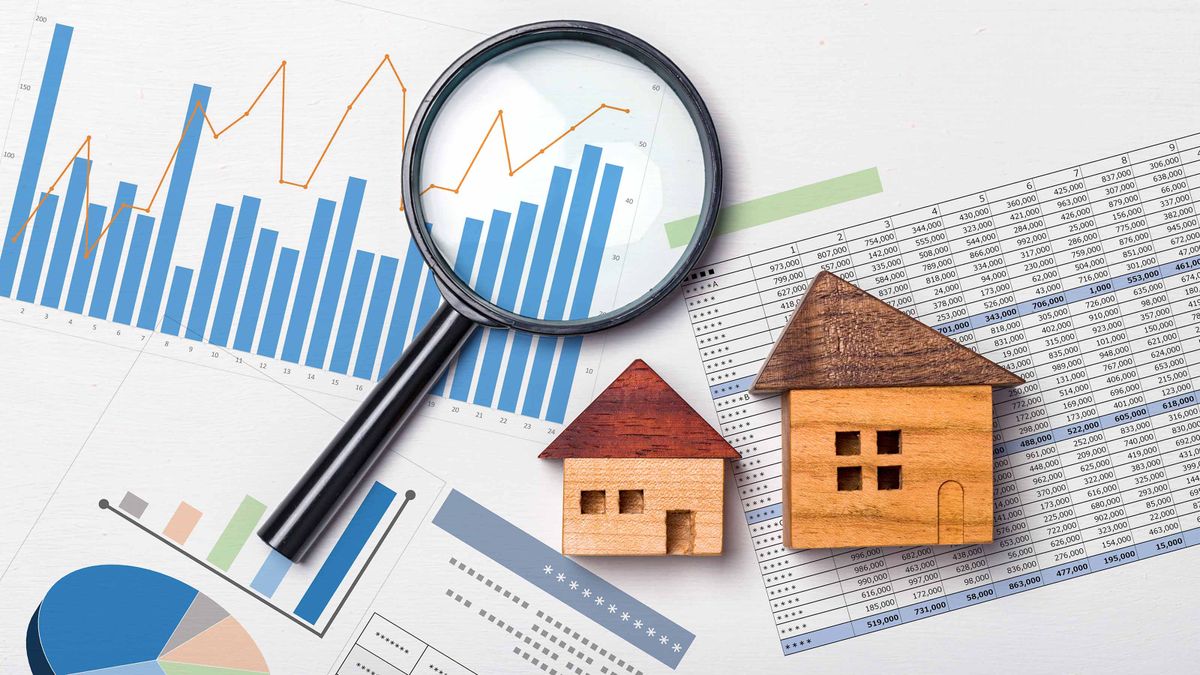
Morgan Stanley recently said that it expects U.S. home prices to drop by 7% between now and December 2023. That might not seem like a lot, but if its prediction comes true, it would be the second-largest decline in housing prices since the Great Depression.
That's not going to be good for the stock market. Here's why.
The average family has two household finance buckets: income and spending. Money comes into the income bucket from your job, freelance gig, small business and passive investments such as stocks and exchange-traded funds (ETFs).
Sign up for Kiplinger’s Free E-Newsletters
Profit and prosper with the best of Kiplinger’s expert advice on investing, taxes, retirement, personal finance and more - straight to your e-mail.
Profit and prosper with the best of Kiplinger’s expert advice - straight to your e-mail.
That income goes out to pay all of your fixed and variable expenses. The mortgage or rent check is the biggest fixed expense for most American households. Whether you rent or own, housing affordability is near or at all-time lows, leaving little for other savings-related initiatives such as your retirement plan.
"Affordability is already challenged, exposing would-be homeowners to an increasing rent environment that erodes their ability to save for a down payment. If that were to be combined with increasing unemployment, we could imagine a scenario in which existing home sales continue to outpace the GFC to the downside," Fortune contributor Lance Lambert reported (opens in new tab) recent comments from Morgan Stanley researchers.
If you're renting and interested in buying a house, the upside of falling prices is that you're going to be able to find your dream home for less. The downside of falling home prices is that your carrying costs will be higher due to increased mortgage rates.
So, for the renter, the savings are fleeting.
For the mortgage-free homeowner who doesn't plan on moving, their circumstances won't change much. However, the household that's been considering refinancing won't be nearly as enthusiastic about the process today as they were a year ago.
We know this from current mortgage refinancing activity.
According to the Mortgage Bankers Association's Refinance Index, refinance applications fell by 18% for the week ending Sept. 30, 2022, compared to the previous week. Meanwhile, applications were down 86% from the same week a year ago. They've all but dried up.
Whether you're a renter or a homeowner, now is not a good time to be making long-term decisions.
Home Prices and the Stock Market
As for stock markets, the current environment of rising interest rates, falling home prices and high inflation is a triple whammy because it makes it that much harder for the average saver to come up with funds to invest.
Empirically, it's been shown that home prices do influence stock prices.
The obvious example would be the Great Recession, which officially lasted 19 months, from December 2007 to June 2009.
According to Federal Reserve data, U.S. household wealth fell by approximately $16.4 trillion from the first quarter of 2007 ($65.8 trillion) to the first-quarter of 2009 ($49.4 trillion). Two years after the official end of the recession, Americans had barely regained 50% of their lost wealth.
At the same time, real estate values fell by almost 30% from the beginning of 2007 to the end of 2010, while the S&P 500 declined by 12% over that same time frame.
While no one is predicting that home prices will fall anywhere near 30% this time around, it's important for investors to realize that indexes such as the S&P 500 and Dow Jones Industrial Average aren't likely to reverse course in the near term.
So, if you're thinking of buying stocks in the fourth quarter, the data suggests the odds of success are stacked against you.
"follow" - Google News
October 11, 2022 at 08:45PM
https://ift.tt/cnQdDt0
If Home Prices Fall, Will Stocks Follow? - Kiplinger's Personal Finance
"follow" - Google News
https://ift.tt/ZJbYNRw
https://ift.tt/vUu1s3z
Bagikan Berita Ini















0 Response to "If Home Prices Fall, Will Stocks Follow? - Kiplinger's Personal Finance"
Post a Comment